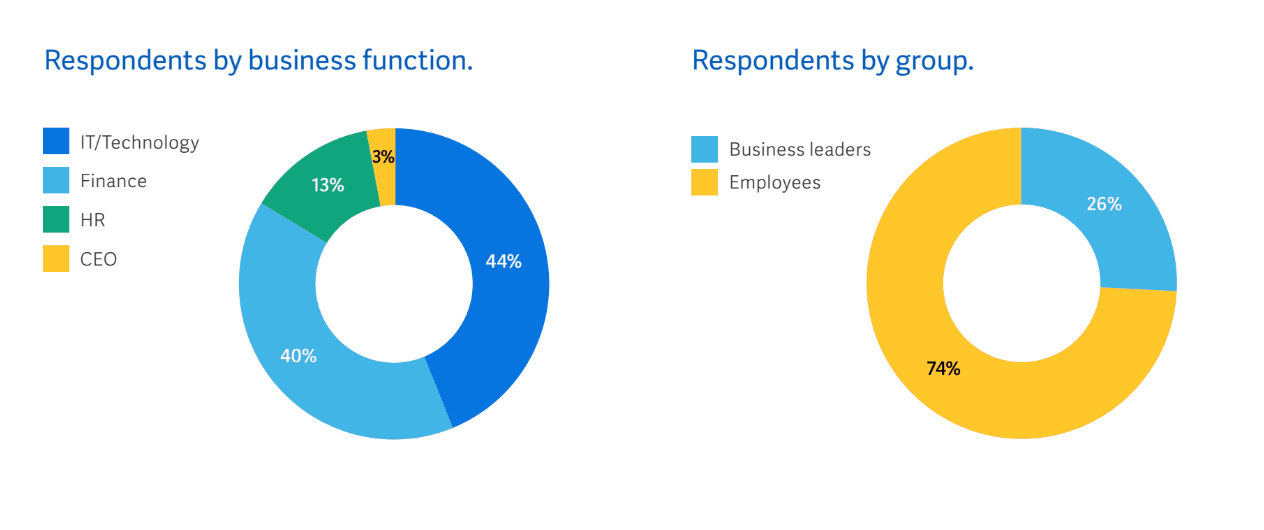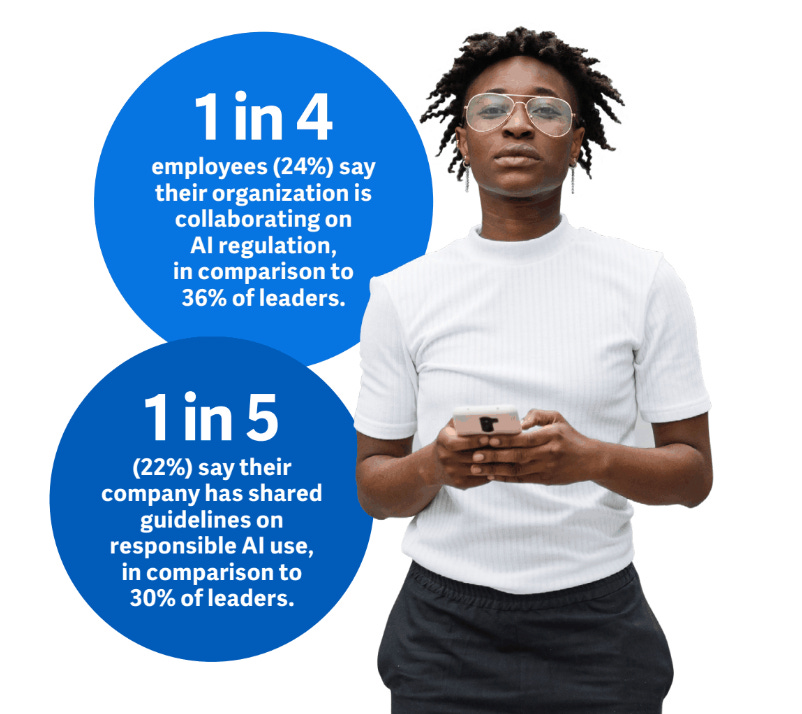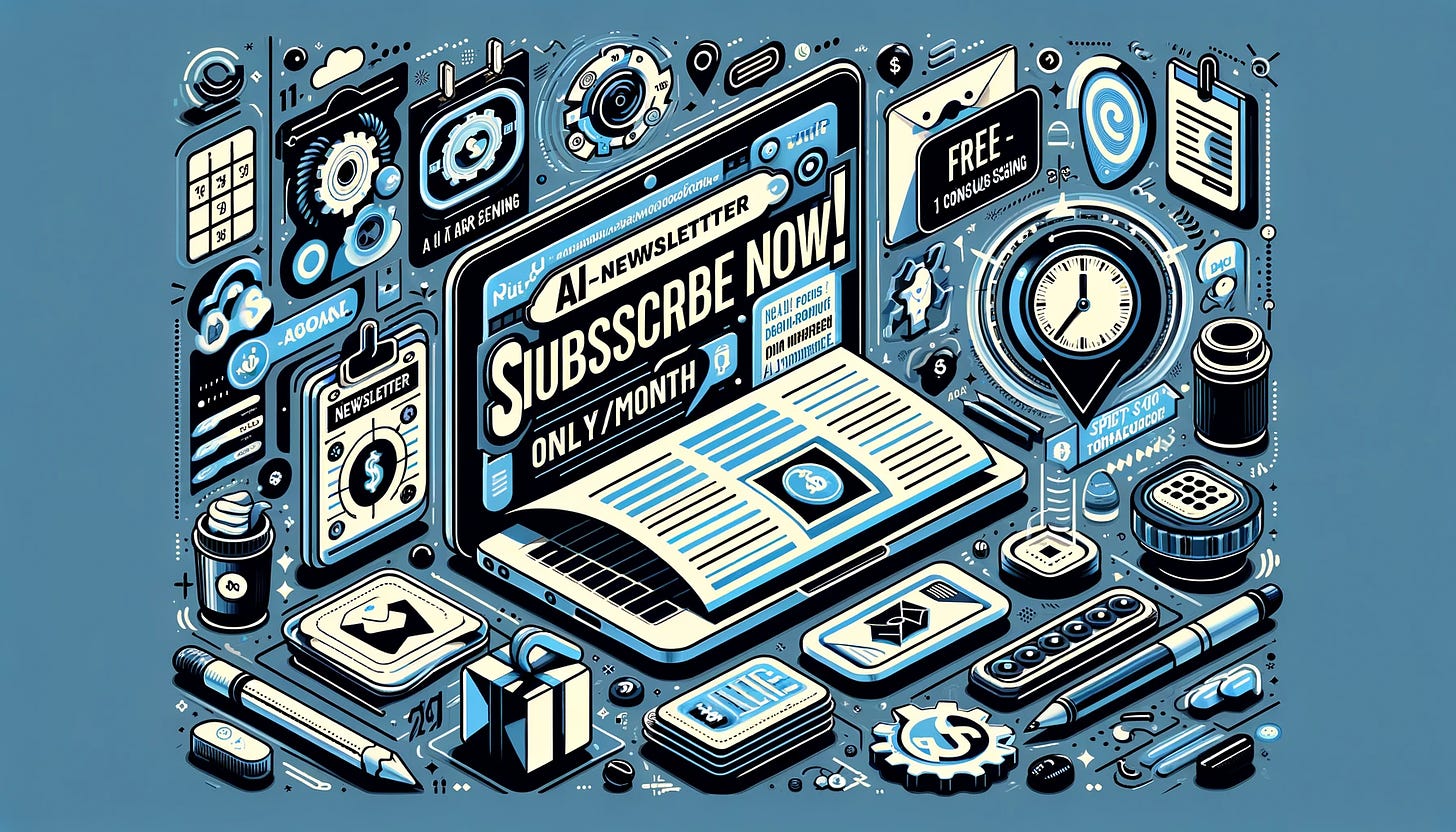- Yaro on AI and Tech Trends
- Posts
- 🚫 Is your company talking about AI Trust?
🚫 Is your company talking about AI Trust?
Plus: More media companies use OpenAI, Battery efficiency improves thanks ML and tools and resources to streamline your work and life.
Hi Everyone 🙏,
by Contentful - The future of intelligent composable content

Hi Team,
More media companies jump on the bandwagon and demand payments from AI companies for “unfair use of content.” AI accelerates the efficiency of batteries, but do you trust this tech, and has your employer talked about AI trust?
Let’s go in…
Do you Trust AI? Is your company talking about AI Trust?
AI Accelerates Battery Efficiency
Now is Conde Nast vs OpenAI
🤔 What Does that even Mean? (Decision Trees)
Follow the Money
🧰 AI Tools of the Day (Podcasting)
💪🏽 Important AI News and Trends.
OpenAI claims the New York Times copyright lawsuit is without merit (TC)
Ex-Twitter CEO Parag Agrawal raises $30 million for his AI startup (BI)
SAG-AFTRA Signs Deal With Voiceover Studio for AI Use in Video Games (Variety)
Quora raised $75M from a16z to grow Poe, its AI chatbot platform (TC)
Duolingo Cuts 10% of Contractors as It Uses More AI to Create App Content (Bloomberg)
Check the Rabbit R1, an AI-powered gadget that can use your apps for you (Verge)
🌐 Web3 and Other Tech news.
Do you Trust AI? Is your company talking about AI Trust?
The study “Closing the AI Trust Gap,” is a survey commissioned by Workday and conducted by FT Longitude. The survey encompassed 1,375 business leaders and 4,000 employees across the globe. This breakdown reveals a comprehensive view of the organizational hierarchy, highlighting the perspectives of leadership and the broader employee population.

The document outlines four AI scenarios impacting businesses:
1. Regulation and Control: New laws limit AI use in hiring, promotions, and financial statements due to public concerns about AI's potential harm.
2. Decline and Collapse: High-profile AI failures have led to legal issues, employee backlash, and negative public perception due to biased AI decisions.
3. Status Quo/Growth: AI adoption leads to some efficiency gains, but overall productivity improvements are inconsistent, sparking debate about AI's value.
4. Transformation: AI significantly reduces manual labor, boosting productivity and employee satisfaction, and leading to further AI expansion.

Has your company shared guidelines on responsible AI use? Please comment.
AI Accelerates Battery Efficiency
Microsoft and Pacific Northwest National Laboratory, using AI and high-performance computing, discovered a new solid-state electrolyte for batteries. This material, less flammable than lithium-ion batteries and uses less lithium, was identified among 32 million candidates using Microsoft's Azure Quantum Elements platform. The AI rapidly narrowed the choices to 23 viable materials. The research aims to find safer, more efficient battery materials, that can accelerate the EV industry with lighter and more powerful batteries. Batteries can also be used to store energy at home and warehouses, to power planes and ocean transportation, and it has the potential to transform all energy-related fields.
Take advantage of our 2024 Special.
Subscribe to our newsletter to receive all the perks, tools, and resources and to help us keep this newsletter going. Only $1 a month to stay on top of the world of AI and Tech, and get a FREE 1-on-1 Consulting Session.

You can still get these “Deals” for FREE.
Download our 70+ AI Learning Resources.
And a powerful list of 250+ AI Tools Here.
Now is Conde Nast vs OpenAI
Condé Nast CEO Roger Lynch will testify against AI companies like OpenAI, accusing them of using copyrighted content to build competing businesses. He argues that using copyrighted material for commercial AI tools doesn't qualify as "fair use." The conflict between news firms and AI companies is escalating, with lawsuits filed and disagreements over the interpretation of "fair use." OpenAI, meanwhile, is seeking licensing agreements with media firms, offering payments for their content.
Just as Hollywood is quickly learning about the unstoppable and rapid evolution of technology, media companies appear to be learning as well and seizing the opportunity to monetize AI technologies, potentially leveraging the situation to demand payments from AI firms for the use of content that has been made publicly available. This strategy could be an effort to capitalize on the current ambiguity surrounding the concept of "fair use" before it becomes more challenging to argue in legal contexts.
Follow The Money
$40M, garnered by Impact Analytics provider of retail, grocery, CPG, and supply chain-focused planning and merchandising software built with native AI.
$18M, snatched by Contents.com, an Italy-based provider that enables businesses to create multilingual content using AI.
$17M, raised by QuantHealth, an Israel-based AI-powered clinical trial design company that simulates clinical trials.
$6M in funding for ArenaX Labs, a Toronto-based technology company that aims to teach the world about artificial intelligence (AI) through play.
🤔 What Does that even Mean?
Decision Trees: A model used in machine learning for making predictions by learning decision rules from features of the data.
Example: A bank uses a decision tree to decide on loan approvals, categorizing applicants based on criteria like income, credit score, and employment history, leading to a straightforward 'approve' or 'deny' outcome.
📰 Publications I am currently reading and recommending:
Short Squeeze - One stop for Financial News and Advice.
Goal Accomplishment - Join us for the real-life strategies and practical support you need to turn your aspirations into achievements.
5 Bullet Friday - Things Tim Ferriss has found (or explored) that week, including books, gadgets, hacks, and more.
🧰 AI Tools of the Day
Podcasting
Voicemaker - A tool to convert text-to-speech human voices.
Scribbler - A tool for summarization of podcasts and YouTube videos.
Enhance - Tools to enhance podcasts, speeches, and audio.
Recast - A tool to convert articles into audio summaries.
Download over 300+ Tools free here.
Reply